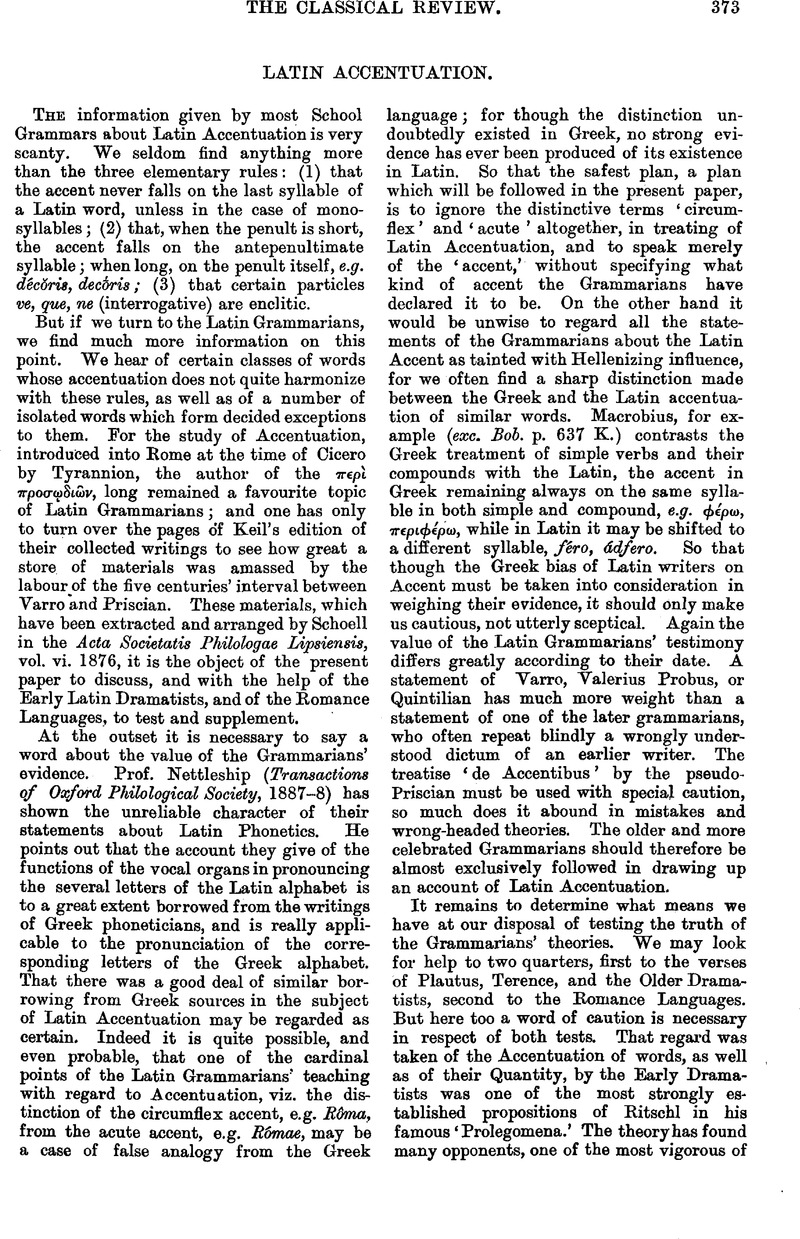No CrossRef data available.
Article contents
Abstract

- Type
- Review Article
- Information
- Copyright
- Copyright © The Classical Association 1891
References
page 375 note 1 Similarly in modern Italian we find the apocopated forms of words like civitatem, honestatem pronounced with a strongly marked stress on the last syllable, città, onestà.
page 376 note 1 Cicero's story about Crassus (Div. II. 40) shows us that the phrase cave ne eas was pronounced in ordinary talk cávĕ n(e)eas with the second syllable of cáve very short. He tells us that Crassus, when embarking at Brundisium for his ill-fated expedition to Parthia, heard a fig-seller hawking Caunian figs, and mistook his cry ‘Cauneas! Cauneas!’ (sc. ficus vendo) for cave ne eas! cave ne eas!
page 376 note 1 The phrase scelus viri, a phrase we may he sure in everyday use on the streets of Rome, has always in the plays of Plautus this accentuation scéluĕs virí; and this was no doubt the current pronunciation of the time.
page 376 note 2 Until the laws of Saturnian metre have been better established, it will be well to refrain from appealing to the accentuation of itaque in the Epitaph on Naevius:
itaque postquam est Orco traditus thesauro.


